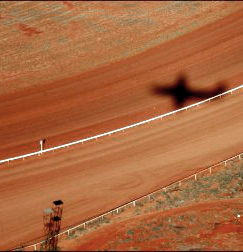Equal time could see FIFO suicide decline
 Suggestions for ways to reduce the tragic rate of suicide among fly-in-fly-out workers have been included in a report following a West Australian Parliamentary.
Suggestions for ways to reduce the tragic rate of suicide among fly-in-fly-out workers have been included in a report following a West Australian Parliamentary.
One of the strongest pieces of advice, according to the chair of the WA Education and Health Standing Committee, was for workers to have as many days off as they have on.
The interim report, ‘Shining a Light on FIFO Mental Health: A Discussion Paper’ says an ‘equal time’ approach would help workers decompress.
Submissions to the inquiry covered concerns about the entire “system of work for FIFO staff, including roster structure, hazards and family separation.
Some workers reported they had stopped taking anti-depressant medication for fear that routine drug testing would uncover the drugs.
Others said the strain of the work itself combined with the long hours of travel, isolation and distance from families took a heavy mental toll.
“Since the inquiry...there has been a suicide each month – three suicides since this inquiry has been commissioned, so that is a concern for us,” said committee chair Graham Jacobs, a former WA Mental Health Minister.
“What we have seen is characteristics in the mining industry, social disconnection, family disconnection – the whole concern and issue of the high-compression rosters and that produces fatigue within the industry and the inability of people in a FIFO situation to de-stress.
“I've been asked where we're going with this inquiry. We are about actually saving lives and I don't say that flippantly.”
The FIFO industry employs about 67,000 workers – close to 60 per cent of the entire WA resource workforce.
That figure has jumped since 2008, when just 40 per cent of resource workers were on FIFO deals.
The inquiry drew 70 submissions and was discussed over the course of 12 hearings.
After all of that, Dr Jacobs said there was still no silver bullet; no “ideal roster”.
But if time off was equivalent to time on, he says the mental health impacts can be reduced.
Speaking to industry press Mining Australia, Dr Jacobs said the companies that create the FIFO industry have a responsibility for counselling.
“Companies have a lot of lifestyle and recreation officers or co-ordinators, but we think you need more than that,” he said.
“Fitness is important and diet is important, but emotional health and well-being is also important, so we think that’s where we will go with that.”
“We believe telephone and online support is not actually fine, so we are looking at sites that can supply a template for providing a counsellor or some sort of psycho-social support on site, whether that be a chaplain/counsellor or some other kind”
Dr Jacobs said the cultural issues on site were best exemplified in an address by suicide victim Reece Connor’s dad, Peter.
“We were all in tears really, Peter told us his son was on site and they had an hour conversation over the phone in which Peter encouraged Reece to go and tell the management that he was suffering from depression and wasn’t coping too well,” he said.
Three weeks after the phone call, Reece Connor was dead.
“Is that about the stigma and the culture? Is that about the personal perception of the stigma [of mental illness in the workplace] or is the stigma really there and is there anything the mining companies can do about it?” Dr Jacobs asked.
The Chamber of Minerals and Energy of Western Australia chief executive Reg Howard-Smith said mental health and wellbeing was broader than the number of FIFO-worker suicides could show.
“This makes responsibility for mental health issues a shared one – for individuals, government, community and industry,” Mr Howard-Smith said.
The committee will now move on to visit mine sites, mining operations and associated accommodation to survey the scene first-hand before a final report is delivered in mid-2016.
Anyone seeking support or information about suicide prevention can contact Lifeline on 13 11 14.







 Print
Print